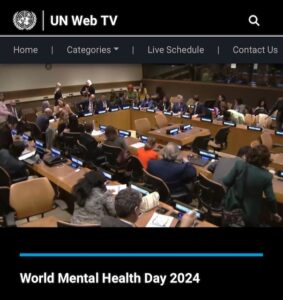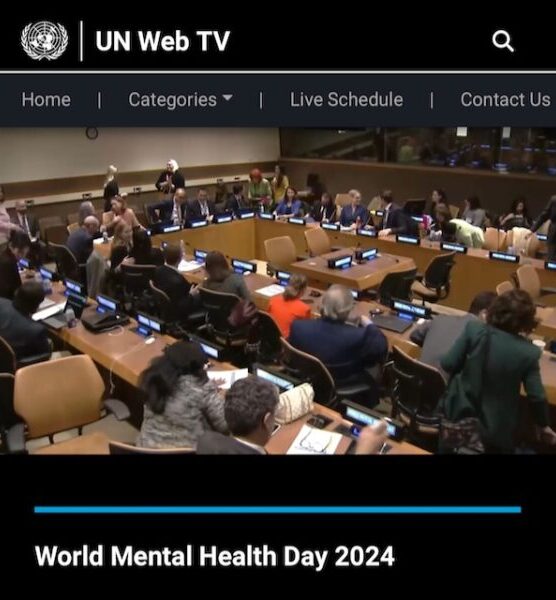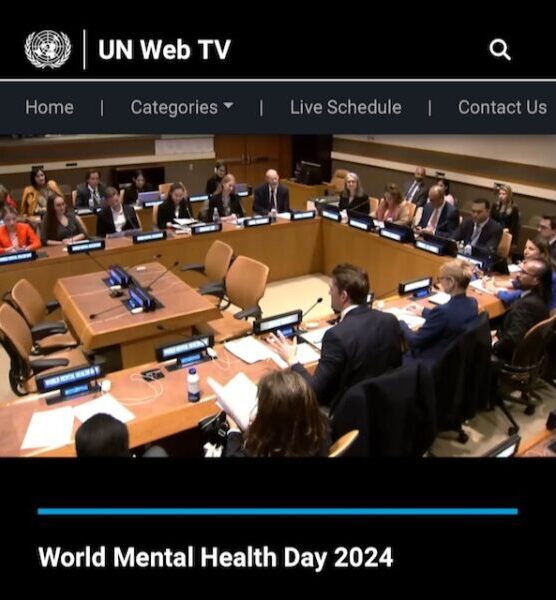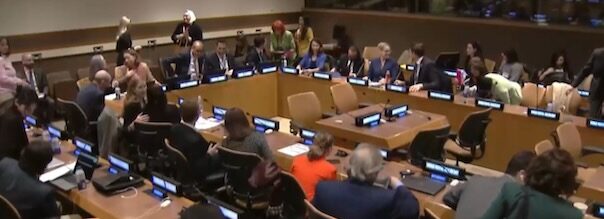A Global Glance at Contributions By and Challenges To Psychologists at the United Nations – Human Rights Day 2024

Elaine H. Olaoye, PhD. ICP Main Representative to the United Nations
The adoption of the Universal Declaration of Human rights (UDHR) 76 years ago of has been a global beacon of hope, as well as, a call to action for millions, inspired by the awareness and courage it awakened and continues to awaken in hearts and minds all over the world. (Glendon 2001). As psychologists volunteering at the United Nations or working with communities around the world, we are motivated to support the human rights of all people.
We pay tribute to Eleanor Roosevelt, her compassionate vision and wisdom in drafting the UDHR, a foundational document leading to many international treaties, such as the International Covenant on Civil and Political Rights (ICCPR) and the Convention on the Elimination of All Forms of Discrimination Against Women (CEDAW).
The Psychology Coalition at the United Nations (PCUN) and the International Council of the Psychologists (ICP) are in solidarity with volunteers who work tirelessly in all kinds of conditions and climates, helping those fighting for the recognition of their human rights. Challenges to exercising human rights today, include levels of discrimination against women and minorities, refugee crises, climate justice, major disparities in health care, and worker’s rights.
Psychologists at PCUN, ICP, as well as the American Psychological Association (APA) and Global Alliance of Psychologists for Human Rights work in a variety of ways to help with the challenges identified above. There are over 500,000 psychologists working worldwide, over 200,000 in the U.S., and up to 82,000 engaged primarily in research. PCUN and its member organizations in the coalition, hold conferences and webinars, notable is Psychology Day, an annual international online event that brings together over 1500 psychologists and students from around the world. ICP a member of the coalition, will hold its 83rd in person conference in Rotterdam in April 2025.
PCUN worked with member nations at the United Nations, led by Mexico, to recognize ‘well-being’ as an important worldwide mental health category. Also we helped to declare March 20th as World Happiness Day, together, these have been igniting a renewal of hope and action in many countries. PCUN also publishes an International Book series Behavioral Science in the Global Arena, four books in the series address many of the challenges to human rights.
The rapid development of AI is likely to have a significant impact on human rights, these could provide new challenges for psychologists. AI will have positive and negative effects. The latter include potentials, that will vary in and by countries, for violations of privacy, perpetuation of biases and discriminations, as well as, infringing on freedoms of expression.


References
Congress, Elaine P., Takooshian, H. et.al. Eds. (2020) Behavioral Science in the Global Arena: Global Mental, Spiritual and Social Health. Information Age Publishing. NC.
Glendon, Mary A. (2001) A World Made New Eleanor Roosevelt and the Universal Declaration of Human Rights. Random House.
Sloan, J (2020). AI for Good Human Right Applications of Data Analytics and Artificial Intelligence. AI and Human Rights Journal 8 (3) 112-126
Rubin, Neal S and Flores, Roseanne L., Eds. (2020) The Cambridge Handbook of Psychology and Human Rights. Cambridge University Press.

